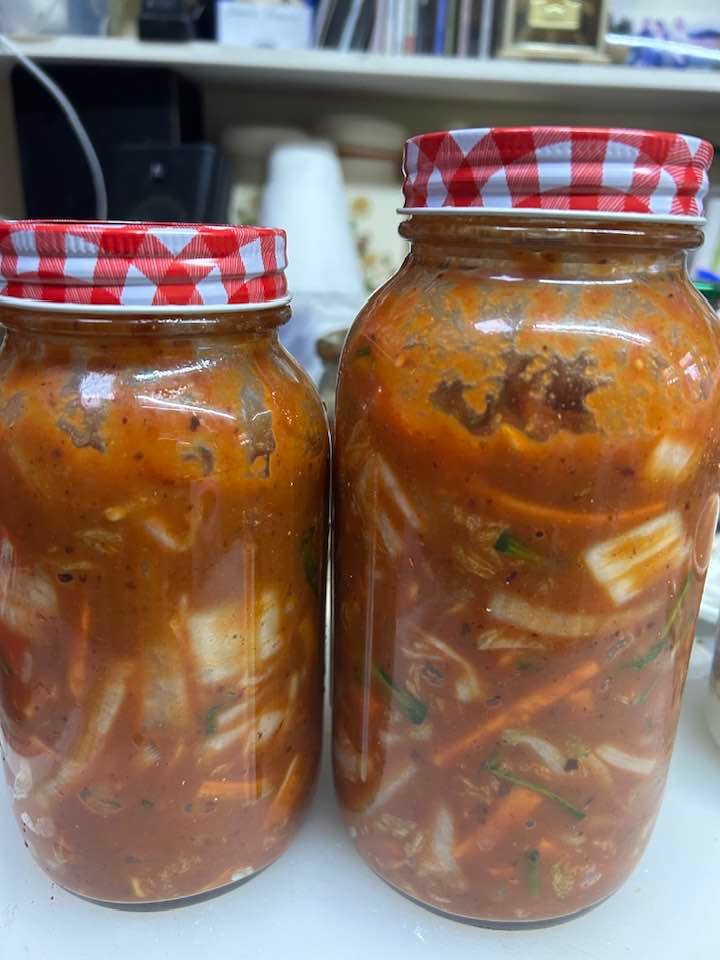Kimchi is a quintessential Korean dish that’s both a culinary staple and a cultural treasure. This fermented delight combines the crunch of Napa cabbage with bold, spicy, and umami-packed flavors, making it a perfect addition to rice dishes, soups, or even enjoyed on its own.
Ingredients
For the Cabbage:
- 1 large Napa cabbage (about 3 lbs)
- 1/4 cup sea salt (non-iodized)
- 4 cups water
For the Kimchi Paste:
- 1 cup Korean chili flakes (gochugaru)
- 1/4 cup fish sauce (or soy sauce for a vegan option)
- 2 tbsp salted shrimp paste (optional, for traditional flavor)
- 2 tbsp sugar
- 5 cloves garlic, minced
- 1-inch ginger, grated
- 1 small onion, finely chopped
- 1/4 cup water
Vegetables for Mixing:
- 1 medium daikon radish, julienned
- 4 green onions, chopped into 2-inch pieces
- 1 medium carrot, julienned
-
Instructions
1. Prepare the Cabbage:
- Cut the Napa cabbage into quarters lengthwise, then into bite-sized pieces.
- Dissolve 1/4 cup of salt in 4 cups of water. Submerge the cabbage pieces in the brine for 2-4 hours, tossing occasionally.
- Rinse the cabbage thoroughly under cold water 2-3 times and drain well.
2. Make the Kimchi Paste:
- In a bowl, mix the gochugaru, fish sauce, shrimp paste (if using), sugar, garlic, ginger, onion, and 1/4 cup water into a thick paste.
3. Combine the Vegetables:
- Add the daikon radish, green onions, and carrots to the drained cabbage in a large mixing bowl.
4. Mix Everything Together:
- Wearing gloves (to avoid chili irritation), massage the kimchi paste into the cabbage and vegetables until well coated.
5. Pack and Ferment:
- Pack the kimchi tightly into a clean glass jar, leaving about 1 inch of space at the top. Press down to remove air pockets.
- Seal the jar loosely or with a fermentation lid to allow gases to escape.
6. Fermentation Process:
- Leave the jar at room temperature (68-72°F) for 2-3 days, checking daily to release gases and press the kimchi down if needed.
- Once it reaches your desired level of fermentation, transfer it to the refrigerator.
7. Enjoy Your Kimchi!
- Kimchi can be eaten immediately but develops deeper flavors over time. Store it in the fridge for up to 3 months.
- Feel free to get creative with additional ingredients like apples, pears, or other vegetables to make your kimchi truly unique. Happy fermenting!
